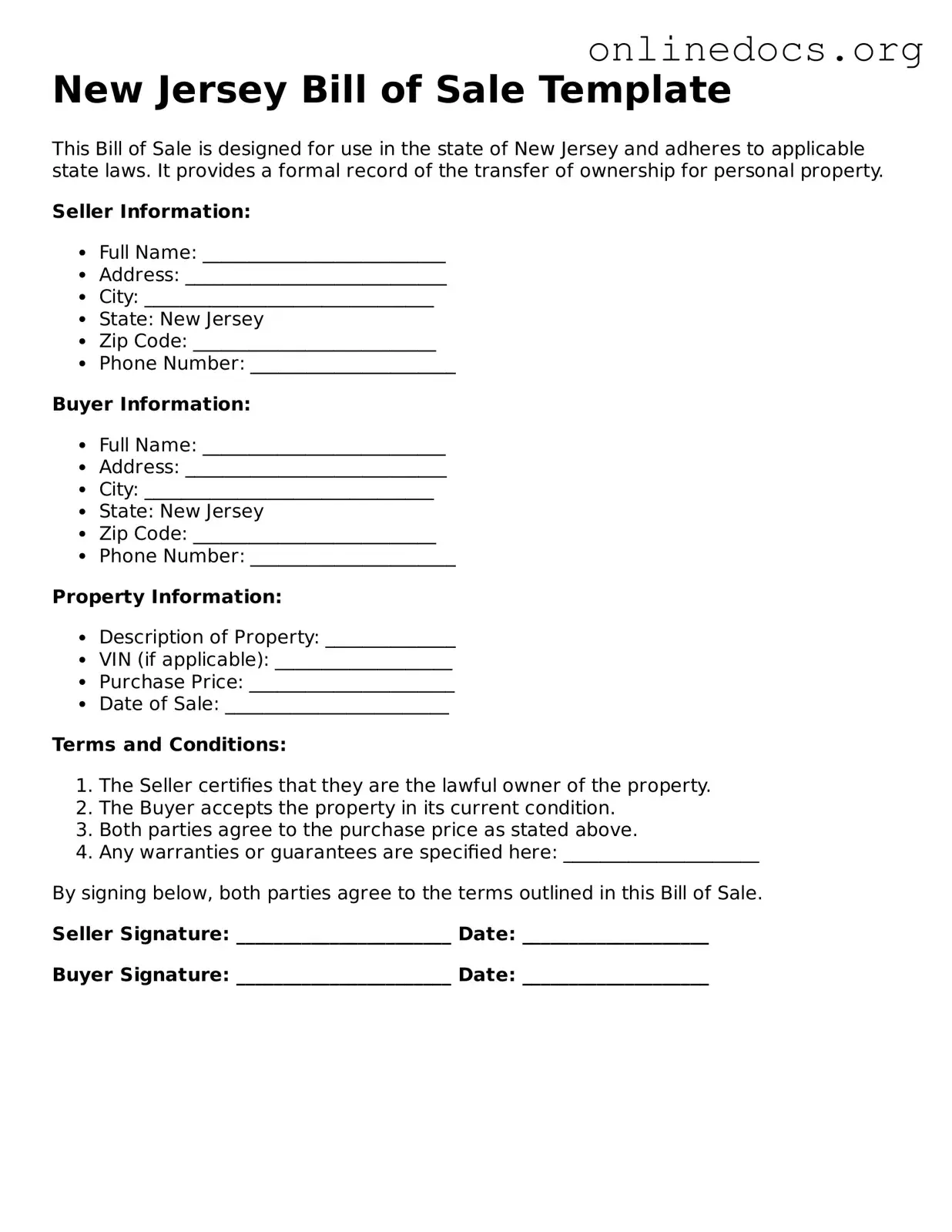Filling out the New Jersey Bill of Sale form can seem straightforward, but many people make common mistakes that can lead to complications. One frequent error is neglecting to include all required information. Buyers and sellers must ensure that they provide complete details about the transaction, including the names, addresses, and signatures of both parties. Missing any of this information can render the document invalid.
Another mistake involves the description of the item being sold. It’s essential to provide a clear and accurate description of the vehicle or item. This includes the make, model, year, and Vehicle Identification Number (VIN) for vehicles. Failing to include this information can lead to confusion or disputes later on.
People often forget to date the Bill of Sale. A date is crucial as it establishes when the transaction occurred. Without a date, it can be challenging to prove when ownership changed hands, which can complicate matters if issues arise in the future.
Many individuals overlook the importance of having the document signed by both parties. A Bill of Sale is not legally binding unless it is signed. Both the buyer and the seller should review the document and sign it to confirm their agreement to the terms.
Another common issue is not having a witness or notary present during the signing. While not always required, having a witness can add an extra layer of legitimacy to the transaction. In some cases, notarization may be necessary, especially for certain types of sales. It’s wise to check the specific requirements for your situation.
People sometimes assume that a verbal agreement is enough. However, a Bill of Sale serves as a written record of the transaction. Relying solely on verbal agreements can lead to misunderstandings and disputes down the line. Always document the sale in writing.
Inaccurate payment details can also create problems. It’s important to specify the payment method and amount clearly. If there are any terms regarding deposits or installments, those should be included as well. Leaving out this information can lead to confusion about what was agreed upon.
Some individuals fail to keep a copy of the Bill of Sale for their records. After the transaction, both parties should retain a copy of the signed document. This can serve as proof of ownership and may be needed for future reference, such as when registering the vehicle or filing taxes.
Lastly, people often underestimate the importance of reviewing the completed form before submission. Taking a moment to double-check all information can prevent many of the issues mentioned above. A careful review ensures that everything is accurate and complete, making the transaction smoother for everyone involved.
